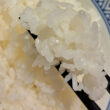Kimchi, renowned for its beneficial bacterial composition including Lactobacillus and plant Lactobacillus, is associated with anti-obesity effects.
Miami, FL (Business Northeast) – Ever avoided strongly seasoned foods because of weight concerns? A fresh study suggests that the salty and spicy Korean favorite “kimchi” might aid in weight management. According to a study in South Korea, consuming three servings of kimchi per day may reduce the prevalence of obesity in men. This study was published in BMJ Open.
Researchers tracked the daily diets of nearly 116,000 Korean individuals aged 40 and above through questionnaires, including 79,000 women and 39,000 men, with an average age of 51. One serving of kimchi was defined as 50 grams and classified as either cabbage or radish, with participants reporting their average daily kimchi consumption.
The results showed that compared to men who consumed less than one serving of kimchi daily, those who consumed 1 to 3 servings daily had an 11-12% lower risk of obesity. Men who consumed three servings of cabbage kimchi daily had a 10% lower risk of obesity. However, regardless of gender, individuals who consumed radish kimchi daily had a roughly 9% lower risk of obesity.
Nevertheless, excessive kimchi consumption is not beneficial; the study found that those who consumed five servings were more likely to be obese than those who consumed less than one serving. Researchers explained that individuals who eat more than three servings of kimchi per day tended to have higher body weight and larger waist circumference, potentially leading to higher calorie intake and increased obesity risk. They may also consume more other foods alongside kimchi, increasing the likelihood of obesity.
As a fermented food, kimchi contains abundant probiotics and antioxidants, significantly affecting human health. Notably, the probiotics in kimchi help improve gut microbiota, enhance intestinal health, and reduce intestinal inflammation. Additionally, antioxidants in kimchi can reduce cellular damage caused by free radicals, strengthen the body’s resistance, and contribute to overall health. However, attention should be paid to the salt content in kimchi when consumed, as excessive salt intake may negatively affect health, especially for individuals with hypertension.
Finally, the researchers stress that because this was an observational study, the food frequency questionnaire may not accurately determine quantities, and the findings may not be generalizable to people in other parts of the world. Although kimchi is delicious and healthy, everyone must still eat it in moderation and with different foods. A balanced diet is the only way to maintain health.










